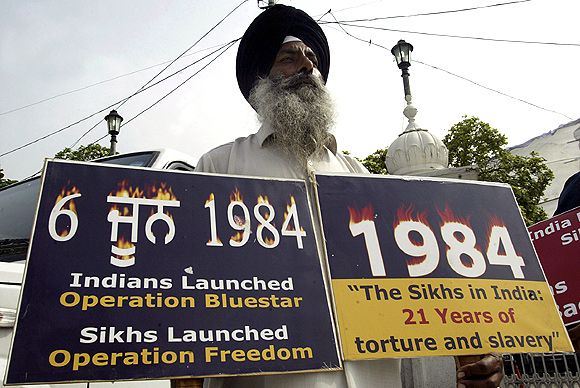 The Delhi high court on Wednesday referred to Delhi Legal Services Authority the Public Interest Litigation seeking a direction to provide protection to the witnesses in 1984 anti-Sikh riot cases involving senior Congress leader Sajjan Kumar.
The Delhi high court on Wednesday referred to Delhi Legal Services Authority the Public Interest Litigation seeking a direction to provide protection to the witnesses in 1984 anti-Sikh riot cases involving senior Congress leader Sajjan Kumar.
A bench of Chief Justice N V Ramana and Justice Pradeep Nandrajog asked the petitioner's counsel H S Phoolka to approach the DLSA secretary, who is the nodal officer appointed by this high court earlier in a similar matter till the enactment of new legislation on the issue, on September 24 with the plea.
The Central Bureau of Investigation on Thursday filed its status report before the court saying only three witnesses have expressed their apprehension of threat.
Appearing for the CBI, counsel D P Singh submitted the agency had contacted nine witnesses and only three have expressed their threat perceptions.
The bench had earlier sought CBI's status report on a PIL filed by 'November 1984 Carnage Justice Committee' for a direction to the Delhi and Punjab governments to provide security to the witnesses during the pendency of the cases before the trial court.
Citing a list of the witnesses in two anti-Sikh riot cases, the PIL said that "despite various judgements and orders passed by various courts, including the high court, and the apex court to the effect that the witnesses should not be allowed to come under pressure of the accused and that it is the duty of the government to provide adequate protection to the witnesses, the respondents have failed to abide by the same."










